Effective Appology
November 23rd, 2013
The Five Ingredients of an Effective Apology
Guy Winch, Ph.D.
Apologies are important in any society. As children we are taught to say “I’m sorry” pretty much as soon as we are able to construct a full sentence. Unfortunately, our skill level doesn’t improve very much from there. More often than not apologies made by adults are just as insincere and unconvincing as those made when we were children.
Why are we so bad at apologizing?

Ask yourself (or someone else) why you (or they) are offering an apology in a given situation and the answer is likely to be one or more of the following:
“I’m apologizing because I was wrong/mistaken/at fault”
“One should/is expected to apologize in such situations”
“It’s the right/mature/responsible thing to do”
And therein lays the problem. Because while such motivations are well and good, none of them reflect what the apology actually aims to achieve. Read more »
You Learn
November 21st, 2013
After a While…

You learn the subtle difference
Between holding a hand and chaining a soul,
You learn that love doesn’t mean leaning
And company doesn’t mean security.
And you begin to learn that kisses aren’t contracts
And presents aren’t promises.
And you begin to accept your defeats
With your head up and your eyes open
With the grace of a woman not the grief of a child.
And you learn to build all your roads on today
Because tomorrow’s grounds is too uncertain for plans
And futures have a way of falling down in mid-flight.
After a while you learn
That even sunshine burns if you get too much.
So you plant your garden and decorate your own soul,
Instead of waiting for someone to bring you flowers.
And you learn that you really can endure…
That you really are strong…
And you really do have worth.
With every day and every good-bye and every hello
You learn…and learn…and learn
(Veronica Shoffstall)
Each of us an artist, each life a canvas
November 20th, 2013
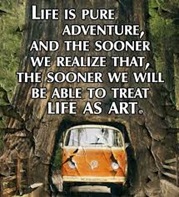
“A writer – and, I believe, generally all persons – must think that whatever happens to him or her is a resource. All things have been given to us for a purpose, and an artist must feel this more intensely. All that happens to us, including our humiliations, our misfortunes, our embarrassments, all is given to us as raw material, as clay, so that we may shape our art.” ~ Jorge Luis Borges
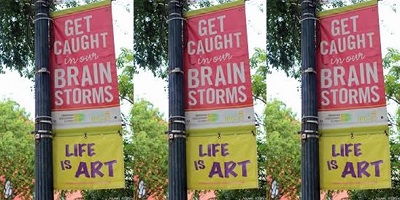
Which questions are more important to you?
November 13th, 2013

What kind of fancy car do you drive?
Or…
How many times have you taken an individual to an appointment who didn’t have transportation?
What is the square footage of your house?
Or…
How many people have you welcomed into your home?
How many fancy clothes you had in your closet?
Or…
How many of those clothes have you given away to those who didn’t have any?
What social class are you in?
Or…
What kindness have you displayed?
How many material possessions do you have?
Or…
Do these material possessions dictate your life?
What is your highest salary?
Or…
Have you trampled over any people to obtain that salary.

How much overtime do you work?
Or…
Do you work overtime for your family? Read more »
Four Steps to Success
November 13th, 2013
When confronted with a difficult problem take a step back—literally…
It’s what a study conducted at Radboud University Nijmegen in the Netherlands suggests. Thirty-eight volunteers took a test that presented words written in different colors. 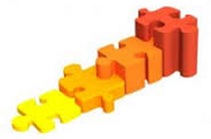 The goal was to identify the colors, not the words—a task that was especially tricky when a word related to a color, such as “blue,” appeared in a different color, such as red.
The goal was to identify the colors, not the words—a task that was especially tricky when a word related to a color, such as “blue,” appeared in a different color, such as red.
As the volunteers stood by computers for the test, they were told to take four steps away in various directions. Remarkably, their performance on the test was significantly faster after they took the steps backward, compared with forward or sideways, says psychologist Severine Koch, who headed the study.
She explains that because backing away “is usually performed in dangerous or problematic situations,” doing so apparently tends to prompt the brain to concentrate in order to meet a challenge. This experiment corroborates a study that the researches published in 2008, which found that extending one’s arm —as if warding something off-enhanced cognition compared with flexing the arm in a beckoning position.
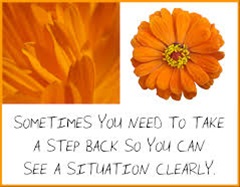
Forgiveness
November 13th, 2013
Forgiveness…is a choice, a decision. It is not earned nor is it deserved.
Forgiveness…is not condoning/excusing/forgetting/justifying/calming Down
Forgiveness…is accepting what happened/ceasing to be angry/being neutral/making yourself feel good. It is the gift you first give to yourself so you can
Quiet your angry feelings and
Change destructive thoughts.

YOUR SUCCESS IN RELATIONSHIPS AND IN LIFE IS GOING TO BE LIMITED OR ENHANCED BY HOW WELL YOU EXERCISE THESE TWO SKILLS:
- YOUR ABILITY TO CONFRONT AND RESOLVE NEGATIVE THINGS QUICKLY, DIRECTLY, LOVINGLY, THOROUGHLY AND EFFECTIVELY
- YOUR ABILITY TO LET GO AND LEAVE BEHIND THE THINGS THAT ARE NOT RESOLVABLE.
Four States of Forgiveness
November 13th, 2013
1. TO FOREGO—To leave alone; detach; take a vacation from it
2. TO FOREBEAR—To abstain from punishing; to be generous
3. TO FORGET—To refuse to dwell; to refuse to recollect; to lay to rest the emotion surrounding the memory
4. TO FORGIVE—To abandon the debt. A conscious decision to cease to harbor the resentment; to forgive the debt and give up the resolve to retaliate
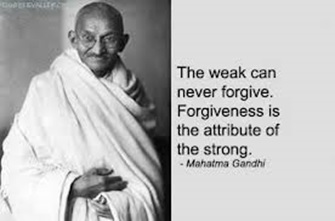
The Rules for Being Human
November 11th, 2013
When you were born, you didn’t come with an owner’s manual; these guidelines make life work better.
- You will receive a body. You may like it or hate it, but it’s the only thing you are sure to keep for the rest of your life.
- You will learn lessons. You are enrolled in a full-time informal school called “Life on Planet Earth”. Every person or incident is the Universal Teacher.
- There
 are no mistakes, only lessons. Growth is a process of experimentation. “Failures” are as much a part of the process as “success.”
are no mistakes, only lessons. Growth is a process of experimentation. “Failures” are as much a part of the process as “success.” - A lesson is repeated until learned. It is presented to you in various forms until you learn it — then you can go on to the next lesson.
- If you don’t learn easy lessons, they get harder. External problems are a precise reflection of your internal state. When you clear inner obstructions, your outside world changes. Pain is how the universe gets your attention.
- You will know you’ve learned a lesson when your actions change. Wisdom is practice. A little of something is better than a lot of nothing. Read more »
Emotional Quicksand
November 11th, 2013
Have you ever felt like you were trapped in emotional quicksand? You’re moving along confidently in the world and then – wham! – your next step lands you in a quagmire of depression, anxiety, anger, discontent, loneliness, or grief. Or…maybe all of the above.
Being of the human persuasion, we have a lot of things happen to us in life, some of which are good and some of which aren’t so good. These latter events are the ones that often make us feel stuck and as though we’re sinking fast. Most of us struggle mightily to get out of the trap. It’s scary and it feels like we’re being sucked, down, down, and there is nothing we can do to get out to get out of the trap. We frantically flail and flail around, trying desperately to save ourselves, only to find that we’re getting pulled down even faster and the quicksand’s grip has become even tighter. When we are stuck in quicksand, our immediate impulse is to struggle and fight to get out. BUT that’s exactly what we mustn’t do in quicksand—because as we put weight down on one part of our body (our foot), it goes deeper. So the more we struggle, the deeper we sink—and the more we struggle.  It’s very much a no-win situation. With quicksand, there’s only one option for survival—to spread the weight of our body over a large surface area—lay down. It goes against all of our instincts to lay down and really be with the quicksand, but that’s exactly what we have to do. So it is with distress— we struggle and fight against it, but we’ve perhaps never considered just letting it be, and being with the distressing thoughts and feelings. But if we did, we’d find that we get through it and survive and thrive far more effectively than if we’d fought and struggled.
It’s very much a no-win situation. With quicksand, there’s only one option for survival—to spread the weight of our body over a large surface area—lay down. It goes against all of our instincts to lay down and really be with the quicksand, but that’s exactly what we have to do. So it is with distress— we struggle and fight against it, but we’ve perhaps never considered just letting it be, and being with the distressing thoughts and feelings. But if we did, we’d find that we get through it and survive and thrive far more effectively than if we’d fought and struggled.
Guess what? This is a hard thing to do because, just as our first reaction to finding our bodies sinking is to panic and thrash around to save ourselves, so our reaction is to sinking emotionally. It’s counter-intuitive and not very natural to relax and stop struggling when everything inside is yelling, “Do something!”
Truth be told, though, we are doing something when we stop struggling against our emotions. We are allowing. We are creating space for our emotions to just be rather than trying to suppress them or make them go away. We are floating with the quicksand and making the slow, steady progress we need to get to firmer ground.
Being You
October 23rd, 2013
 is when another’s needs and wants are as precious and important to you as your own. Not more important than your own because then your importance is diminished in your own eyes and in the eyes of your partner (how you treat yourself is how your partner may likely treat you). Not less important than your own because that leads to being dismissive of the importance of your partner in your life. It is when we refuse to use anything from the past against another in the present. We refuse the impulse to use another’s vulnerability against, leaving them open to feeling shame or worse yet, regret that they confided in another.
is when another’s needs and wants are as precious and important to you as your own. Not more important than your own because then your importance is diminished in your own eyes and in the eyes of your partner (how you treat yourself is how your partner may likely treat you). Not less important than your own because that leads to being dismissive of the importance of your partner in your life. It is when we refuse to use anything from the past against another in the present. We refuse the impulse to use another’s vulnerability against, leaving them open to feeling shame or worse yet, regret that they confided in another.
 is to bear conflict with calmness. It is the realization that life, day to day, moment by moment, is changing. The only experience in life that is predictable is that it is unpredictable. Everything comes and goes. Within every beginning is its ending. And we, who hold on to constancy with dear life so we can have some sense of being in control, are called upon to develop an appreciation and acceptance of change in our lives a a fundamental characteristic of life. My assumptions about others intentions are not necessarily correct. And to live life as an art is to pause and consider the following: our assumptions of course seem real to us because they are our own creations. Whether they are correct or not is, actually, coincidence. It is always best to check out our assumptions with another. Time and again, if we nurture patience and strength to do this, we will be amazed at what we find that we did not know; we will be amazed at what we see that we did not see was there to see! It may do our hearts good to reflect on the words of the poet Rilke, ““Be patient toward all that is unsolved in your heart and try to love the questions themselves, like locked rooms and like books that are now written in a very foreign tongue. Do not now seek the answers, which cannot be given you because you would not be able to live them. And the point is, to live everything. Live the questions now. Perhaps you will then gradually, without noticing it, live along some distant day into the answer.”
is to bear conflict with calmness. It is the realization that life, day to day, moment by moment, is changing. The only experience in life that is predictable is that it is unpredictable. Everything comes and goes. Within every beginning is its ending. And we, who hold on to constancy with dear life so we can have some sense of being in control, are called upon to develop an appreciation and acceptance of change in our lives a a fundamental characteristic of life. My assumptions about others intentions are not necessarily correct. And to live life as an art is to pause and consider the following: our assumptions of course seem real to us because they are our own creations. Whether they are correct or not is, actually, coincidence. It is always best to check out our assumptions with another. Time and again, if we nurture patience and strength to do this, we will be amazed at what we find that we did not know; we will be amazed at what we see that we did not see was there to see! It may do our hearts good to reflect on the words of the poet Rilke, ““Be patient toward all that is unsolved in your heart and try to love the questions themselves, like locked rooms and like books that are now written in a very foreign tongue. Do not now seek the answers, which cannot be given you because you would not be able to live them. And the point is, to live everything. Live the questions now. Perhaps you will then gradually, without noticing it, live along some distant day into the answer.”
Joyce Lynne Juster, M.A., LP copyright @2013.

